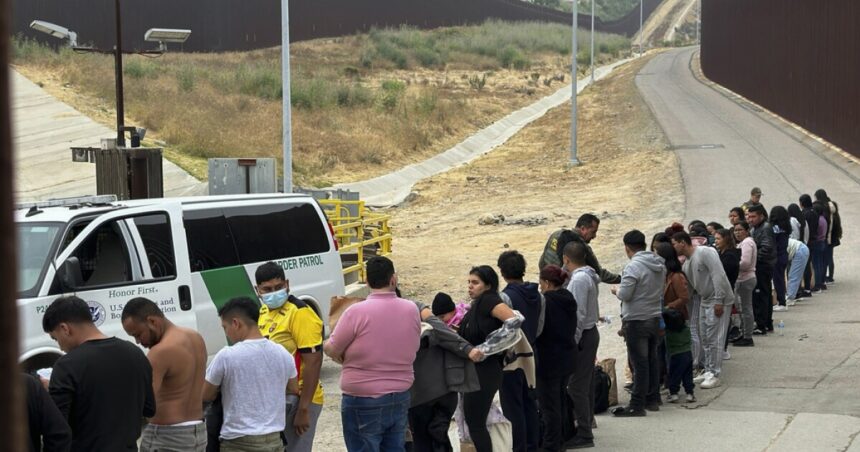Concerned advocates fear that a recent executive order in Texas may deter immigrants from seeking medical treatment.
Texas Governor Greg Abbott signed an executive order directing the state to “gather information on patients who are not legally present in the United States and the expenses of the care provided to them.”
The order will come into effect on November 1.
Christian Piatt, the spokesperson for Human Rights Initiative of North Texas, which offers legal assistance mainly to undocumented asylum-seekers, expressed his concerns. Piatt stated, “The impact of this, whether intentional or not, could lead people to feel intimidated and hesitant to access these essential services that we believe everyone is entitled to. They are coming from a country where the government is untrustworthy, and they have been persecuted, so they will naturally be distrustful of any government.”
RELATED STORY | Lack of federal funding for migrant crisis puts nonborder cities in tight spot
Although Governor Abbott’s office declined an interview, they directed us to their statement announcing the order, which emphasizes that “Texans should not have to bear the cost of providing medical care to illegal immigrants.”
Abbott’s office plans to seek reimbursement from the federal government once the final expenses are determined.
This initiative extends beyond Texas and is part of a broader campaign to prevent American taxpayer funds from supporting healthcare for undocumented immigrants.
In August, 15 Republican attorneys general sued the Biden administration over a regulation that would permit DACA recipients to apply for healthcare coverage under the Affordable Care Act.
Kansas Attorney General Kris Kobach argued that the Biden administration should not be allowed to violate federal law.
A similar tracking project in Florida hospitals issued its initial report this year.
The report revealed that undocumented immigrants accounted for 0.8% of hospital visits from June to December 2023, comprising less than 1% of the total operating costs of $566 million.
Alexis Tsoukalas, a senior policy analyst with the Florida Policy Institute, highlighted the importance of immigrants, including undocumented ones, to Florida’s economy. Tsoukalas mentioned, “Undocumented immigrants contribute around $1.8 billion in state and local taxes in Florida alone. Regardless of their employment status, they all have value as individuals.”
There is evidence indicating that such policies can discourage migrants from seeking healthcare services.
RELATED STORY | Texas governor says he’s sent 95,000 migrants to ‘sanctuary cities
According to Politico’s analysis, Medicaid spending for undocumented immigrants in Florida significantly decreased after hospitals began inquiring about patients’ immigration status.
Additionally, a survey conducted in 2020 revealed that a quarter of mixed-status families avoided certain noncash government aid programs due to fears of it affecting future green-card applications.
In response, the Texas Hospital Association stated that hospitals are obligated by law to provide life-saving treatment to everyone, regardless of their ability to pay or legal status.





